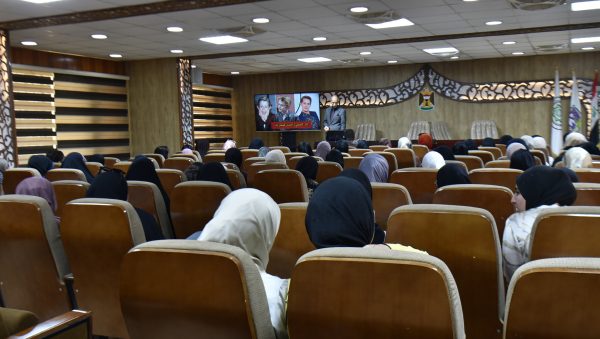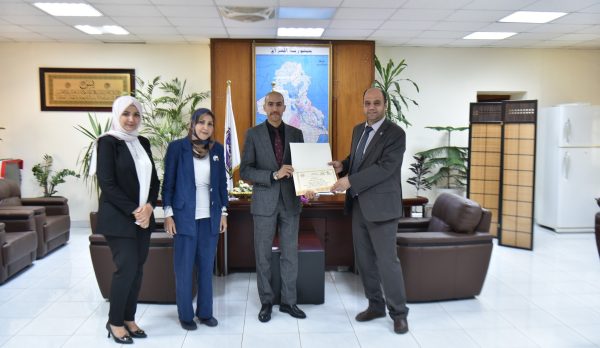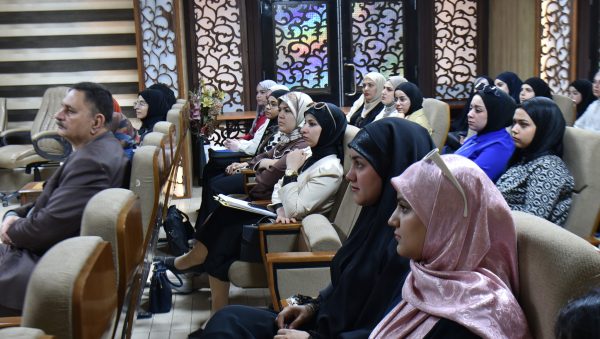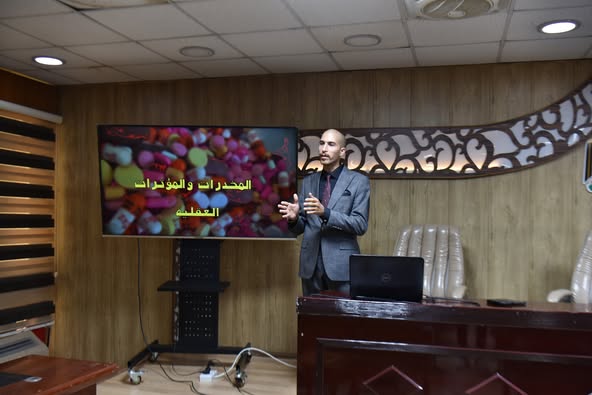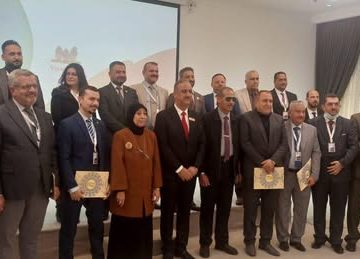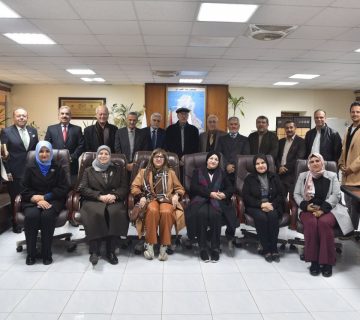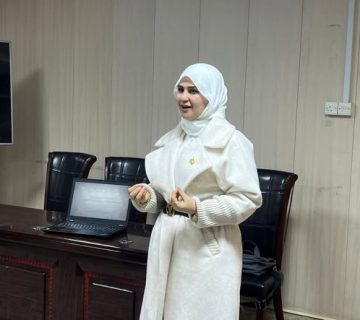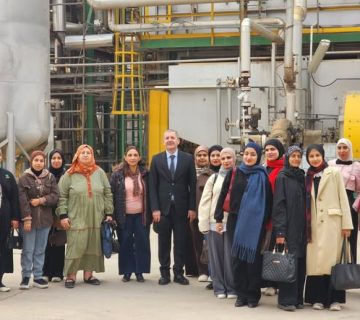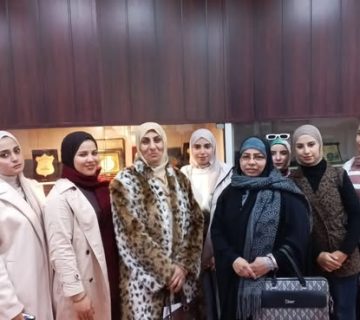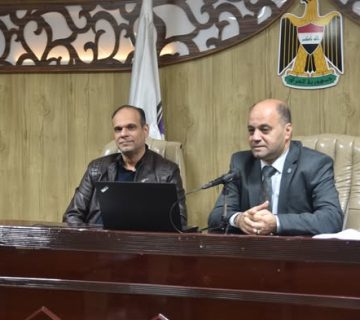Under the patronage of the Dean of the College of Science for Women, Professor Dr. Sameera Naji Khdim, the Rehabilitation and Employment Unit, in collaboration with the Psychological Counseling and Educational Guidance Unit, organized an awareness workshop entitled “The Scourge of Drugs and the Role of Youth in Combating It.” The workshop was delivered by Dr. Hassan Ali Al-Najm, Media and Public Relations Officer of the Dental Syndicate, on April 23rd in the Conference Hall.
The event was attended by the Assistant Dean for Scientific Affairs, Assistant Professor Dr. Yusra Abdul Sahib, alongside a number of faculty members, staff, and students of the college.
The workshop aimed to raise awareness about the dangers of drug abuse and its increasing prevalence, while highlighting the vital role that youth can play in confronting this issue and mitigating its negative consequences through responsibility and awareness. The discussion included an overview of the current state of drug spread in certain communities, emphasizing its threat to health, psychological, and social security, as it represents one of the most serious challenges facing young people due to its destructive effects on individuals, families, and society at large.
The workshop also addressed the key causes and contributing factors of drug abuse, such as social, psychological, and economic influences, the impact of negative peer pressure, lack of family supervision, and intellectual and cultural voids among some youth. The speaker highlighted the significant role that informed and educated youth can play in spreading awareness within their communities and universities by initiating awareness campaigns and participating in community activities aimed at building a generation resilient to this scourge.
Additionally, various methods employed by relevant authorities to combat drug abuse were reviewed, underscoring the importance of cooperation between security agencies, educational institutions, healthcare professionals, and the media to curb the spread of this phenomenon and manage its serious repercussions. Emphasis was also placed on the need to activate the role of educational institutions in adopting continuous counseling and educational programs, with a focus on early-stage awareness.
The workshop witnessed significant engagement from attendees, who raised numerous questions and inquiries regarding early detection of drug use, key mechanisms for psychological and rehabilitative support for recovering individuals, and discussed real-life examples of young people who overcame addiction with the help of family support and professional guidance.
In conclusion, the attendees expressed their gratitude and appreciation to the organizing parties for their commendable efforts in conducting such activities, which contribute to the health and safety of students and enhance their societal and ethical awareness regarding pressing social issues.
